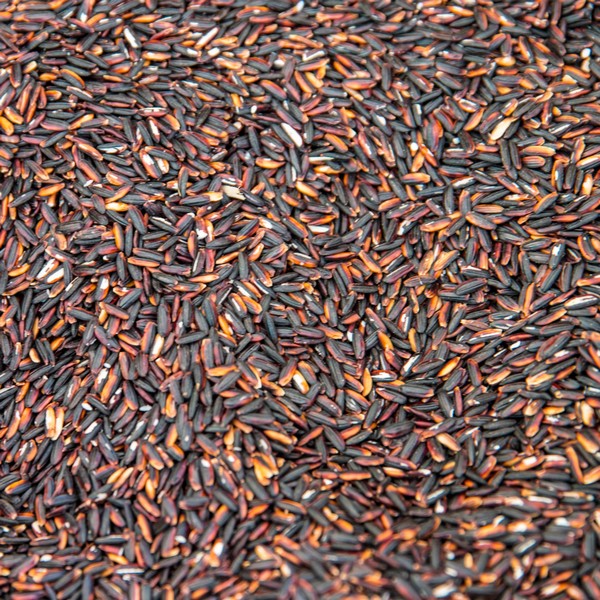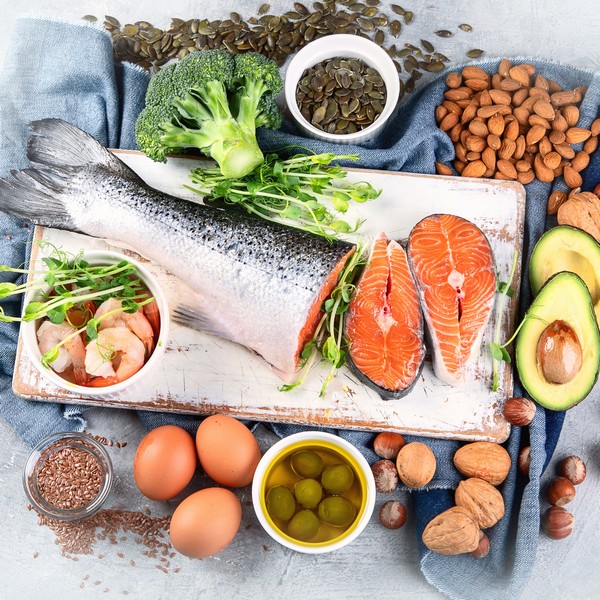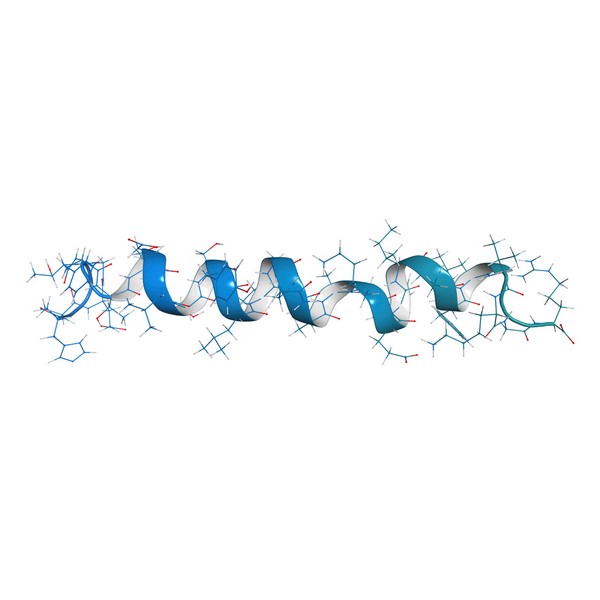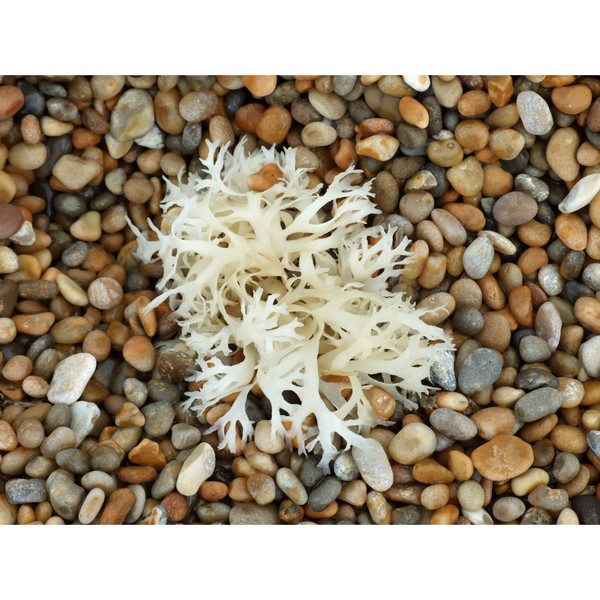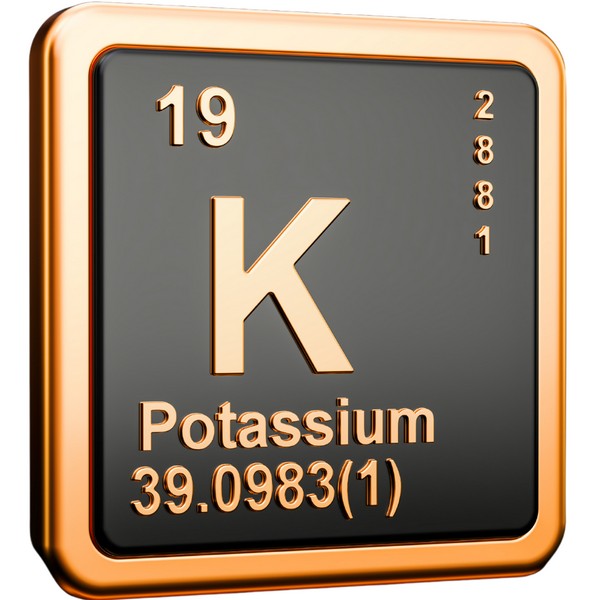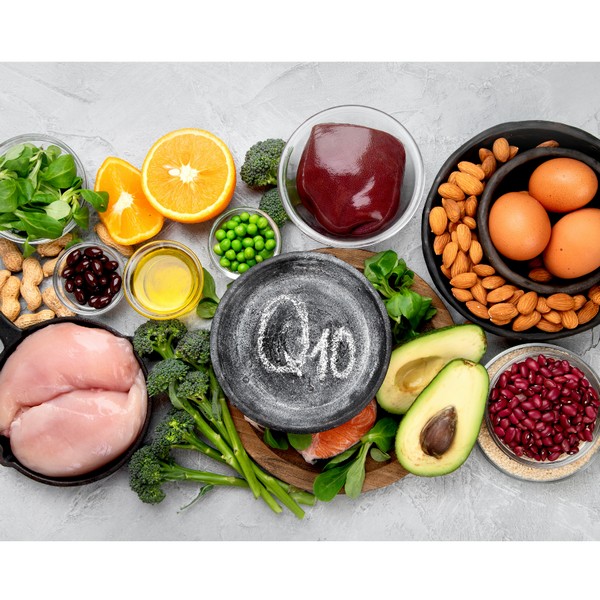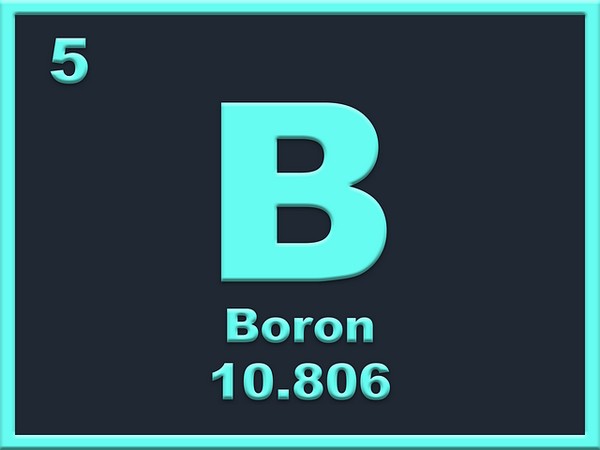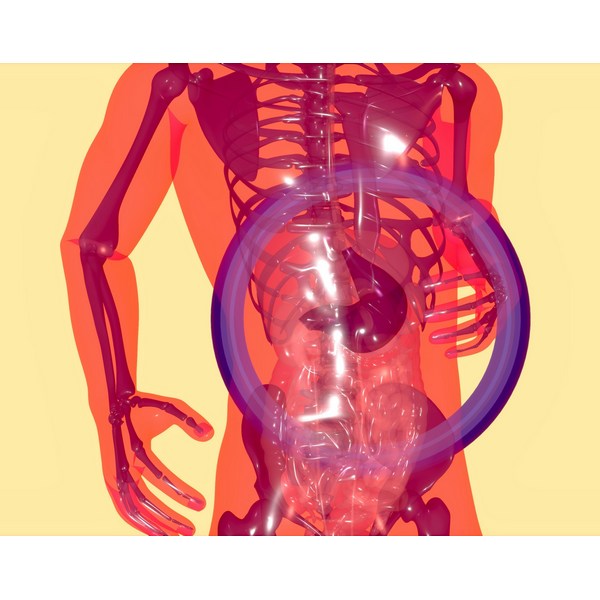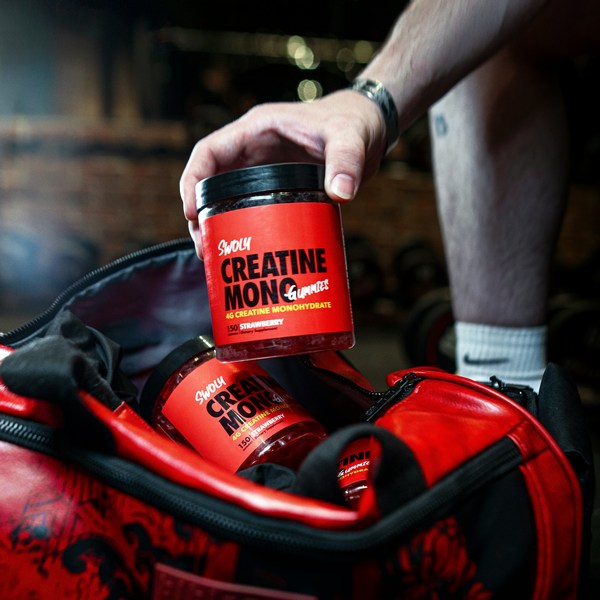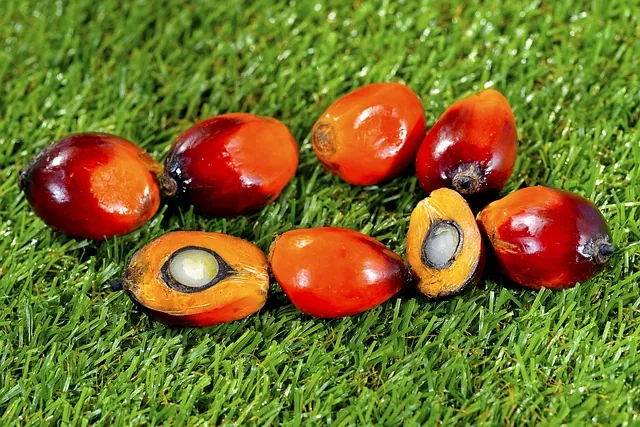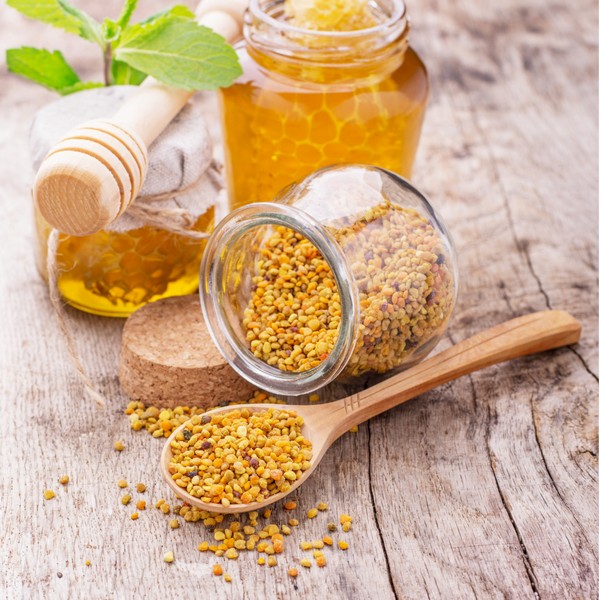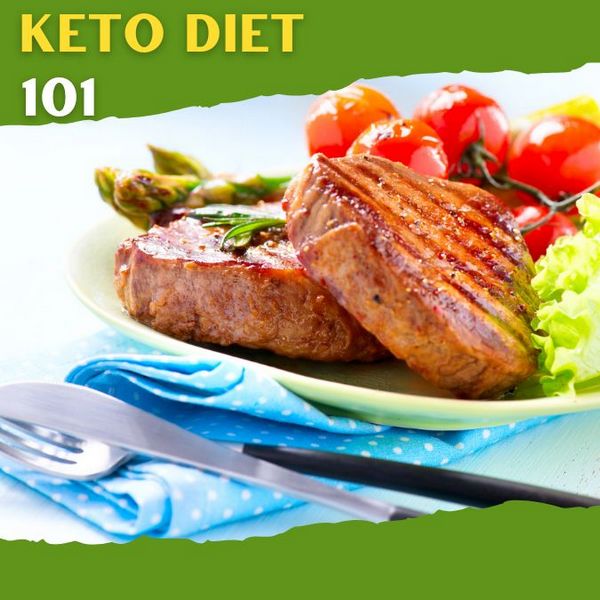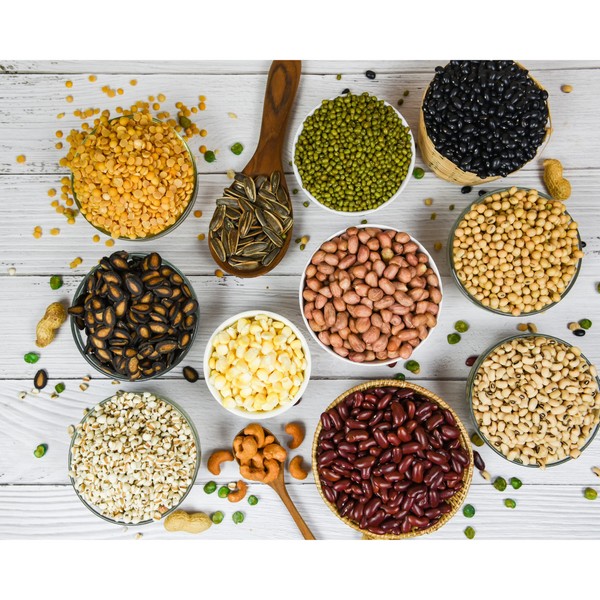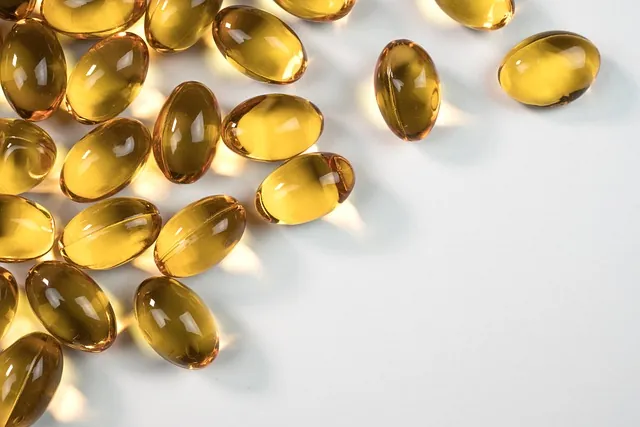Key Takeaways
- Nutritional yeast is a rich source of vitamins and minerals.
- It supports immune function and promotes skin health.
- Its cheesy flavor makes it a popular ingredient in vegan and vegetarian diets.
Introduction
Nutritional yeast, a deactivated yeast commonly used as a food ingredient, is praised for its nutritional content and health benefits.
It’s especially popular among vegans and vegetarians as a source of B vitamins, protein, and other essential nutrients.
Nutritional Content of Nutritional Yeast
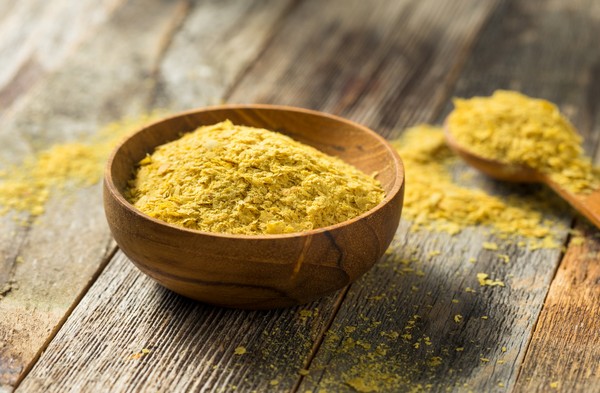
Nutritional yeast is packed with essential vitamins and minerals. It is particularly known for its high content of B vitamins, including B12, which is crucial for energy production and neurological function.
- B Vitamins: Nutritional yeast is rich in B vitamins such as B1 (thiamine), B2 (riboflavin), B3 (niacin), B6 (pyridoxine), and B12 (cobalamin). These vitamins are essential for energy metabolism and maintaining a healthy nervous system.
- Protein: It contains all nine essential amino acids, making it a complete protein source. This is beneficial for muscle repair and overall growth.
- Trace Minerals: Nutritional yeast provides important trace minerals like zinc, selenium, and manganese, which support various bodily functions including immune response and antioxidant protection.
Health Benefits of Nutritional Yeast
Supports Immune Function

Nutritional yeast contains beta-glucan, a type of fiber that boosts the immune system. Beta-glucan activates immune cells, helping the body defend against infections and diseases.
- Beta-Glucan: Enhances the body’s immune response by activating macrophages, neutrophils, and natural killer cells. This makes it effective in fighting off bacterial, viral, and fungal infections.
- Antioxidants: The presence of antioxidants like glutathione and selenomethionine helps protect cells from oxidative stress, supporting overall immune health.
Promotes Skin Health
The vitamins and minerals in nutritional yeast contribute to healthy skin. B vitamins, in particular, play a crucial role in maintaining skin health and preventing skin conditions.
- B Vitamins: Vital for skin regeneration and reducing signs of aging. Vitamin B2 (riboflavin) helps maintain healthy skin by supporting tissue repair and reducing inflammation.
- Zinc: Important for skin repair and inflammation reduction. It helps treat conditions like acne and supports overall skin integrity.
Enhances Energy Levels
Nutritional yeast is a good source of energy-boosting nutrients. The B vitamins and protein content help improve energy levels and reduce fatigue.
- B Vitamins: Essential for converting food into energy. They help improve metabolic functions and maintain energy levels throughout the day.
- Protein: Provides sustained energy by supporting muscle repair and growth. This is particularly beneficial for those with high physical activity levels.
Dietary Benefits of Nutritional Yeast
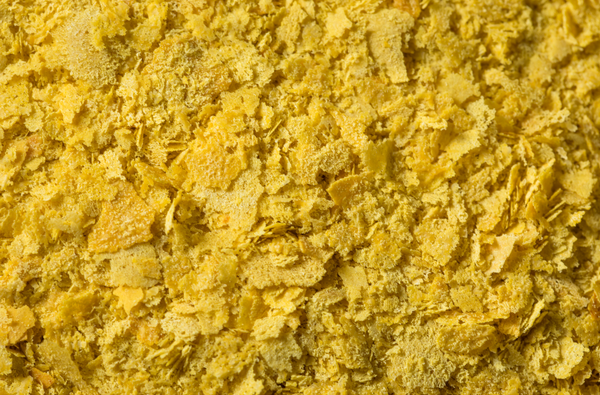
Vegan and Vegetarian-Friendly
Nutritional yeast is a popular ingredient in vegan and vegetarian diets due to its cheesy flavor and nutritional content. It provides essential nutrients that might be lacking in plant-based diets.
- Vitamin B12: Essential for vegans and vegetarians as it is typically found in animal products. Nutritional yeast is often fortified with B12, helping to prevent deficiency.
- Complete Protein: Contains all nine essential amino acids, making it a valuable protein source for those following a plant-based diet.
Weight Management
Nutritional yeast can aid in weight management by promoting a feeling of fullness. Its high fiber and protein content help control appetite and support healthy weight loss.
- Fiber: Contributes to satiety and helps regulate digestive health. It can prevent overeating by making you feel full longer.
- Low in Calories: Provides essential nutrients without adding many calories. This makes it an excellent addition to a weight management diet.
Flavor Enhancer
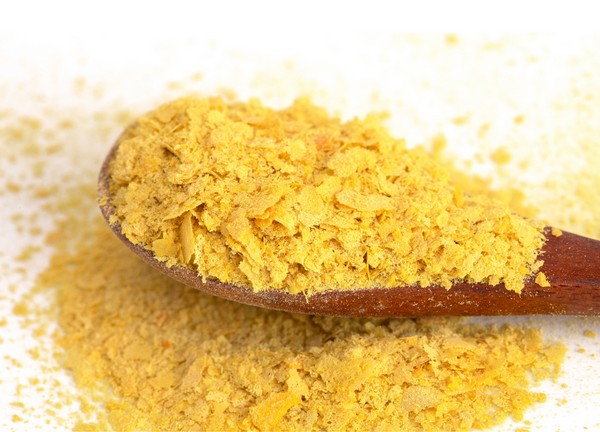
Nutritional yeast adds a savory, cheesy flavor to foods without the need for dairy. It can be used as a seasoning or ingredient in various dishes, making it a versatile addition to many recipes.
- Cheesy Flavor: Enhances the taste of soups, sauces, and snacks. It’s a popular dairy-free alternative to cheese in many vegan recipes.
- Versatile Use: Can be sprinkled on popcorn, added to pasta dishes, or blended into smoothies. This versatility makes it easy to incorporate into a variety of meals.
Conclusion
Nutritional yeast offers numerous health benefits, from supporting immune function to enhancing energy levels and promoting skin health. Its nutritional profile and versatility make it a valuable addition to any diet, particularly for those following vegan or vegetarian lifestyles.
FAQs
What is nutritional yeast?
Nutritional yeast is a deactivated yeast used as a food ingredient, known for its high content of vitamins, minerals, and protein.
How does nutritional yeast support immune function?
Nutritional yeast contains beta-glucan and antioxidants, which help boost the immune system and protect cells from oxidative stress.
Can nutritional yeast help with weight management?
Yes, its high fiber and protein content promote fullness, aiding in appetite control and healthy weight management.
Is nutritional yeast suitable for vegans and vegetarians?
Absolutely, it provides essential nutrients like vitamin B12 and complete protein, making it an excellent choice for plant-based diets.
How can I use nutritional yeast in cooking?
Nutritional yeast can be sprinkled on popcorn, added to pasta, blended into smoothies, or used to enhance the flavor of soups and sauces.
Research
Abid, R., Waseem, H., Ali, J., Ghazanfar, S., Muhammad Ali, G., Elasbali, A. M., & Alharethi, S. H. Probiotic Yeast Saccharomyces: Back to Nature to Improve Human Health. Journal of Fungi, 8(5), 444.
https://doi.org/10.3390/jof8050444
Al-Asmakh, M., Anuar, F., Zadjali, F., Rafter, J. and Pettersson, S., 2012. Gut microbial communities modulating brain development and function. Gut Microbes, [online] 3(4), pp.366–373.
https://doi.org/10.4161/gmic.21287.
Alkadi H. A Review on Free Radicals and Antioxidants. Infect Disord Drug Targets. 2020;20(1):16-26. doi: 10.2174/1871526518666180628124323. PMID: 29952268.
Bekatorou, A., Psarianos, C. and Koutinas, A.A., 2006. Production of food grade yeasts. Food Technology & Biotechnology, 44(3).
De Oliva-Neto, P., Oliveira, S.S., Zilioli, E. and Bellini, M.Z., 2016. Yeasts as potential source for prebiotic β-glucan: Role in human nutrition and health. In Probiotics and prebiotics in human nutrition and health. IntechOpen.
Dawson, K.A., 2002. Not just bread and beer: new applications for yeast and yeast products in human health and nutrition.
Drozdova, P.B.; Tarasov, O.V.; Matveenko, A.G.; Radchenko, E.A.; Sopova, J.V.; Polev, D.E.; Inge-Vechtomov, S.G.; Dobrynin, P. V Genome sequencing and comparative analysis of Saccharomyces cerevisiae strains of the Peterhof genetic collection. PLoS ONE 2016, 11, e0154722.
Farid, F., Sideeq, O., Khan, F. and Niaz, K., 2019. Saccharomyces cerevisiae. In Nonvitamin and Nonmineral Nutritional Supplements (pp. 501-508). Academic Press.
Fleet, G.H., 2006. Yeasts in food and beverages (Vol. 2). Springer Science & Business Media.
Guerrini, S., Mangani, S., Romboli, Y., Luti, S., Pazzagli, L. and Granchi, L., 2018. Impact of Saccharomyces cerevisiae strains on health-promoting compounds in wine. Fermentation, 4(2), p.26.
Jayachandran M, Chen J, Chung SSM, Xu B. A critical review on the impacts of β-glucans on gut microbiota and human health. J Nutr Biochem. 2018 Nov;61:101-110. doi: 10.1016/j.jnutbio.2018.06.010. Epub 2018 Aug 10. PMID: 30196242.
Jespersen, L., 2003. Occurrence and taxonomic characteristics of strains of Saccharomyces cerevisiae predominant in African indigenous fermented foods and beverages. FEMS yeast research, 3(2), pp.191-200.
Kogani, G., Pajtinka, M., Babincova, M., Miadokova, E., Rauko, P., Slamenova, D. and Korolenko, T.A., 2008. Yeast cell wall polysaccharides as antioxidants and antimutagens: Can they fight cancer? Minireview. Neoplasma, 55(5), p.387.
Kumura, H., Tanoue, Y., Tsukahara, M., Tanaka, T. and Shimazaki, K., 2004. Screening of dairy yeast strains for probiotic applications. Journal of dairy science, 87(12), pp.4050-4056.
Lazo-Vélez, M.A.; Serna-Saldívar, S.O.; Rosales-Medina, M.F.; Tinoco-Alvear, M.; Briones-García, M. Application of Saccharomyces cerevisiae var. boulardii in food processing: A review. J. Appl. Microbiol. 2018, 125, 943–951.
Lederer AK, Hannibal L, Hettich M, Behringer S, Spiekerkoetter U, Steinborn C, Gründemann C, Zimmermann-Klemd AM, Müller A, Simmet T, Schmiech M, Maul-Pavicic A, Samstag Y, Huber R. Vitamin B12 Status Upon Short-Term Intervention with a Vegan Diet-A Randomized Controlled Trial in Healthy Participants. Nutrients. 2019 Nov 18;11(11):2815. doi: 10.3390/nu11112815. PMID: 31752105; PMCID: PMC6893687.
Lindegaard, L., & Jespersen, L. Beneficial Effects of Probiotic and Food Borne Yeasts on Human Health. Nutrients, 2(4), 449-473.
https://doi.org/10.3390/nu2040449
Lohan, N. and Sharma, S.C., 2023. Use of Yeast in the Welfare of Human and Their Applications. In Role of Microbes in Sustainable Development: Human Health and Diseases (pp. 653-665). Singapore: Springer Nature Singapore.
Moorlag SJCFM, Khan N, Novakovic B, Kaufmann E, Jansen T, van Crevel R, Divangahi M, Netea MG. β-Glucan Induces Protective Trained Immunity against Mycobacterium tuberculosis Infection: A Key Role for IL-1. Cell Rep. 2020 May 19;31(7):107634. doi: 10.1016/j.celrep.2020.107634. PMID: 32433977; PMCID: PMC7242907.
Romero, R.O.D.O.L.F.O. and Gomez-Basauri, J.U.A.N., 2003. Yeast and yeast products, past present and future: from flavors to nutrition and health.
Rizzo, G., Laganà, A. S., Chiara Rapisarda, A. M., Grazia La Ferrera, G. M., Buscema, M., Rossetti, P., Nigro, A., Muscia, V., Valenti, G., Sapia, F., Sarpietro, G., Zigarelli, M., & Vitale, S. G. (2016). Vitamin B12 among Vegetarians: Status, Assessment and Supplementation. Nutrients, 8(12). https://doi.org/10.3390/nu8120767
Satyanarayana, T. and Kunze, G. eds., 2017. Yeast diversity in human welfare. Springer Singapore.
Serafini M, Peluso I. Functional Foods for Health: The Interrelated Antioxidant and Anti-Inflammatory Role of Fruits, Vegetables, Herbs, Spices and Cocoa in Humans. Curr Pharm Des. 2016;22(44):6701-6715. doi: 10.2174/1381612823666161123094235. PMID: 27881064; PMCID: PMC5427773.
Uryu H, Hashimoto D, Kato K, Hayase E, Matsuoka S, Ogasawara R, Takahashi S, Maeda Y, Iwasaki H, Miyamoto T, Saijo S, Iwakura Y, Hill GR, Akashi K, Teshima T. α-Mannan induces Th17-mediated pulmonary graft-versus-host disease in mice. Blood. 2015 May 7;125(19):3014-23. doi: 10.1182/blood-2014-12-615781. Epub 2015 Mar 4. PMID: 25740827.
Sharma GN, Gupta G, Sharma P. A Comprehensive Review of Free Radicals, Antioxidants, and Their Relationship with Human Ailments. Crit Rev Eukaryot Gene Expr. 2018;28(2):139-154. doi: 10.1615/CritRevEukaryotGeneExpr.2018022258. PMID: 30055541.
Vilela, A. The Importance of Yeasts on Fermentation Quality and Human Health-Promoting Compounds. Fermentation, 5(2), 46. https://doi.org/10.3390/fermentation5020046
Woodside, J., Yarnell, J., McMaster, D., Young, I., Harmon, D., McCrum, E., Patterson, C., Gey, K., Whitehead, A., & Evans, A. (1998). Effect of B-group vitamins and antioxidant vitamins on hyperhomocysteinemia: A double-blind, randomized, factorial-design, controlled trial. The American Journal of Clinical Nutrition, 67(5), 858-866. https://doi.org/10.1093/ajcn/67.5.858
Postbiotics: What They Are and Why They Are Important
Key Takeaways Postbiotics 101: They’re beneficial by-products from probiotics that consume prebiotics Boosts Immunity: Postbiotics sharpen your immune system, helping fight off pathogens and reducing…
Carnivore Diet: Benefits, Risks, Food List & More
Key Takeaways The carnivore diet is a keto diet that only allows for animal-based foods, and has potential health benefits. Tips for success include hydrating,…
11 Electrifying Health Benefits of Trace Minerals
What are Trace Minerals?The Major Roles of Trace MineralsSources of Trace MineralsDeficiencies in Trace MineralsThe Impact of Trace Minerals on Specific Health ConditionsFrequently Asked Questions…
Cholesterol Misconceptions: Separating Fact from Fiction
Key Takeaways: High inflammation and blood pressure are major risk factors for heart disease. Cholesterol is vital for hormone production, cell membrane structure, and digestion,…
How Stabilized Rice Bran Supports Digestive & Heart Health
Key Takeaways – Stabilized rice bran is a nutrient-rich source of vitamins, minerals, and antioxidants. – The stabilization process prevents rancidity, making it a long-lasting…
Medium Chain Triglycerides (MCTs): Uncovering 5 Health Benefits
This potent, natural source of energy has gained considerable attention in recent years for its impressive array of benefits. MCT oil is a versatile addition…
13 Most Dangerous Foods Revealed
Key Highlights Fugu, or pufferfish, is one of the most poisonous foods in the world, with its organs containing a neurotoxin that can paralyze motor…
ALA vs. DHA & EPA Omega-3: Why Source Matters
Key Takeaways ALA (Alpha-Linolenic Acid) is found in flaxseeds, chia seeds, and walnuts, but converts poorly to DHA and EPA. DHA and EPA are critical…
Allulose: The Best Sugar Alternative
Vitamin E Complex
Key Takeaways Vitamin E is a powerful antioxidant that protects cells from oxidative damage, reducing the risk of chronic diseases. The vitamin E complex includes…
8 Key Signs of Nutrient Deficiency
Zinc Supplements: Risks and Dangers
Key Takeaways Zinc supports immunity, wound healing, and cell growth. High zinc supplement doses can cause health problems. Always consult a healthcare provider before taking…
L-Carnitine: Benefits, Dosage, and Side Effects
Key Takeaways L-Carnitine supports fat metabolism and energy production. Benefits include enhanced exercise performance and improved heart health. Proper dosing minimizes potential side effects. Understanding…
Taurine: The Mighty Amino Acid for Optimal Health
Key Takeaways Taurine supports heart health, regulates blood pressure, and reduces oxidative stress. Essential for muscle function, brain health, and cognitive function. Aids in insulin…
Whole Food Vitamin C Complex: Expert Tips for Health
Key Highlights Whole food vitamin C complex is essential for a strong immune system and overall health. Unlike synthetic ascorbic acid, whole food vitamin C…
Tallow: Benefits, Uses, and Nutrition
Key Takeaways: Tallow is a nutrient-rich animal fat with many practical uses. It contains valuable vitamins such as A, D, E, and K. Tallow is…
Natural Treatment for Irritable Bowel Syndrome (IBS): Effective Remedies Explored
Understanding IBSSymptoms of IBSRole of Diet in IBSNatural Remedies for IBSSupplements for IBSRole of Probiotics in IBSFrequently Asked Questions Understanding IBS Irritable Bowel Syndrome (IBS)…
L-Glutamine and Gut Health: Benefits and Side Effects
Key Takeaways L-Glutamine is essential for gut health. Benefits include improved digestion and reduced inflammation. Potential side effects are rare but can occur in high…
Liver: 5 Surprising Benefits Backed by Science
Hold on! Don’t run away! You need to read this. Liver is a highly nutritious organ meat that is often overlooked in modern diets. Packed…
Increase GLP-1 Agonists Naturally
Key Takeaways: GLP-1 agonists regulate appetite, insulin production, and blood sugar levels. Regular exercise and quality sleep maintain optimal GLP-1 levels. High-protein, low-carb diets effectively…
Do This! The Ultimate Guide to Fasting Safely and Effectively
In our increasingly busy lives, finding time to take care of our bodies can often take a backseat. One method that has gained attention recently…
Iron Overload: Symptoms & Prevention Tips
Key Takeaways: Iron overload happens when the body absorbs excessive iron, which can damage organs. Common symptoms include fatigue, joint pain, and skin changes. Early…
Benefits of Sea Moss Explained
Key Takeaways Rich in Nutrients: Sea moss is packed with essential vitamins, minerals, and antioxidants, supporting overall health and wellness. Supports Immune Function: Its high…
Trimethylglycine TMG: Betaine Anhydrous Explained
Key Takeaways Betaine Anhydrous (TMG) is a compound found naturally in various foods and offers several health benefits. TMG supports liver health by reducing fatty…
Potassium: Benefits & Sources
Key Takeaways Potassium is essential for regulating fluid balance, nerve signals, and muscle function. It supports heart health and helps maintain proper blood pressure. Adequate…
Is Eating Sugar Really That Bad For Your Health?
Should You Really Be Concerned? In short, YES! Thank you, that’s all folks, and do have a good evening. Seriously though, extensive research has established…
CoQ10: What Is It and Why Is It Important?
Key Takeaways CoQ10 (Coenzyme Q10) is an antioxidant produced by the body, essential for energy production in cells. Levels of CoQ10 naturally decrease with age…
Spirulina: Health Benefits and Uses
Key Takeaways Spirulina boosts immune function with its high nutrient content and antioxidant properties. Rich in proteins and essential vitamins, enhances overall nutrition. Helps reduce…
Magnesium: Better Sleep, Stress Relief and More
5 Major Benefits of Omega-3 Fatty Acids
Key Takeaways Omega-3 fatty acids support heart health by reducing triglycerides and lowering blood pressure. They play an important role in brain function and development,…
Boron: Benefits of a Lesser-Known Mineral
Key Takeaways Boron is a trace mineral with significant health benefits. It supports brain function, bone health, and hormonal balance. Understanding boron’s role can improve…
Actual Superfoods: Real Foods You Should Be Eating
Key Takeaways Superfoods are nutrient-dense foods, offering essential vitamins, minerals, and fats. Prioritize high-quality sources for optimal nutrition. They support overall health, boost energy, and…
The Impact of Ultra-Processed Foods on Your Wellbeing
Every bite we take is a step toward either wellness or illness. In our fast-paced world, ultra-processed foods have become a staple, silently shaping our…
TUDCA Benefits for Health
Key Takeaways TUDCA promotes liver health, aiding cell protection and repair. Enhances digestion by improving bile flow and supporting gut health. May protect brain health…
Calcium Supplements: What You Need to Know
Key Takeaways Calcium supplements have been linked to heart disease and kidney stones. Excess calcium from supplements can lead to imbalances and health issues. Natural…
Eggs: A Comprehensive Guide
Key Highlights Eggs are a nutritional powerhouse, containing all the essential vitamins and minerals needed for overall health. Vital role in a balanced diet, providing…
Berberine Has 11 More Incredible Benefits Than You Thought
Berberine is a compound found in several plants that has been used for centuries in traditional Chinese medicine and Ayurveda. It has recently gained popularity…
What You Need to Know About Salt and Your Health
Table of ContentsThe Health Benefits of Unrefined Sea SaltElectrolyte BalanceMineral ContentImproved HydrationBoosted Energy LevelsImmune SupportImproved DigestionBalanced pH LevelsReduced Water RetentionHeart Health SupportStronger Bones and TeethEnhanced…
Conjugated Linoleic Acid (CLA): Benefits & Sources
Key Takeaways CLA is a type of fatty acid found primarily in animal products like beef and dairy. Known for potential benefits such as weight…
How Collagen Supports Healthy Skin, Joints, and More
Key Takeaways Collagen is the most abundant protein in the body, supporting the structure of skin, bones, and connective tissues. It helps maintain skin elasticity,…
6 Best Natural Ways to Manage Your Blood Sugar: A Quick & Easy Guide
1. Intermittent fasting2. Exercise3. Dietary fiber4. Sleep5. Weight loss6. SupplementationBioclinic NaturalsPGX BiotiquestSugar Shift Every time you eat it, it’s plotting something sinister. Sugar isn’t as…
Creatine Myths Debunked: Separating Fact from Fiction
Key Takeaways Common myths about creatine, such as it causing kidney damage, weight gain, and being a steroid, are widespread but unsupported by scientific evidence….
Red Palm Oil: Unveiling The Potent Health Benefits
Struggling to find the right oil for your health and kitchen? Red palm oil is packed with nutrients that might just be what you need….
Bee Pollen: Nature’s Secret Superfood
Key Takeaways Bee pollen is packed with essential nutrients and offers numerous health benefits. It supports immune function, boosts energy, and promotes overall well-being. Adding…
Healthy Fat: is Butter Better?
Key Takeaways Saturated fats, like those found in butter, may not be as harmful as once thought and can be part of a healthy diet….
Keto Diet 101: A Complete Beginner’s Guide
Key Highlights The ketogenic diet is a low-carb, high-fat diet that can lead to weight loss and has many health benefits. By reducing carbohydrate intake…
5-HTP: Natural Ways to Boost Serotonin and Improve Mood
Key Takeaways: 5-HTP is a natural compound that helps boost serotonin levels in the brain. It can support mood regulation, sleep improvement, and stress reduction….
Vitamin A (Retinol): Essential Nutrient for Health
Key Takeaways: Natural Vitamin A, also known as Retinol, is crucial for vision, immune function, and skin health. Retinol is essential for healthy vision, particularly…
Protein: You probably need more
Key Takeaways Protein is needed for building and repairing body tissues. It supports muscle growth, immune function, and hormone production. Bioavailable sources of protein include…
Copper: Little-Known Health Benefits
Key Takeaways Copper is an essential trace mineral with benefits, including ceruloplasmin production, energy production and antioxidant properties. Copper is critical for brain health by…
Grains & Legumes Secretly Harming Your Health? Find Out Now!
Key Takeaways: – Grains and legumes contain antinutrients like lectins and phytic acid, which can interfere with nutrient absorption. – These foods may trigger digestive…
How Cod Liver Oil Can Transform Your Health and Wellness
Cod liver oil has been used for centuries as a natural remedy for various health conditions. Packed with essential nutrients and fatty acids, cod liver…
Silica: for Healthier Skin, Hair, and Nails
Key Takeaways: Silica supports strong and healthy skin, hair, and nails. It promotes bone health by boosting collagen production. Silica helps improve joint flexibility and…




